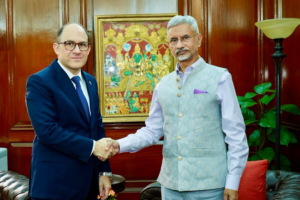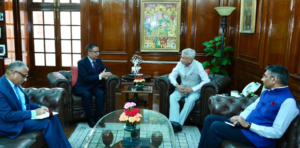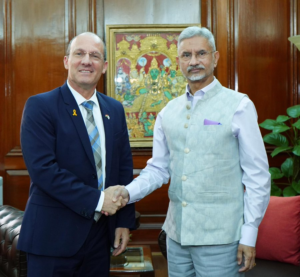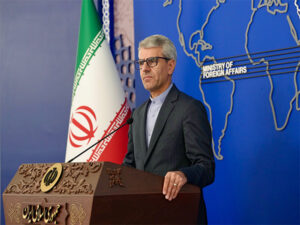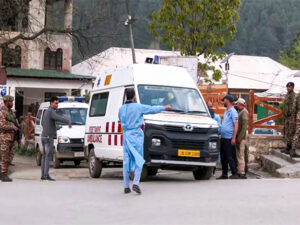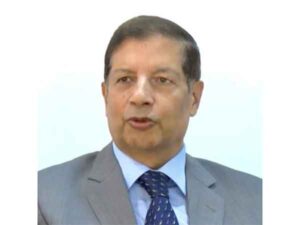It’s important to de-risk global economy in era of volatility and uncertainty: Jaishankar
Brussels, May 17 (PTI) In the era of volatility and uncertainty, it’s important to de-risk the global economy and yet to ensure that there is very responsible growth, External Affairs Minister S Jaishankar has said.
His remarks came following the first meeting of the India-EU Trade and Technology Council (TTC) held here on Tuesday.
The meeting, co-chaired on the Indian side by Jaishankar, Commerce and Industry Minister Piyush Goyal and Communications, Electronics and IT Minister Rajeev Chandrasekhar, covered key focus areas of strategic technologies, digital governance and green energy technologies.
Jaishankar described it as a “very good meeting”.
“It’s been a very strong start. And there is a context to what we are doing.
In this era of volatility and uncertainty, it’s important to de-risk the global economy and yet to ensure that there is very responsible growth,” Jaishankar told the media.
“So a lot of what we discussed related to resilient and reliable supply chains, to trust and transparency in the digital domain; in the fact that we today will have to focus on how to get the best out of a global talent pool in a knowledge economy,” he said.
He said during the course of the meeting one of his colleagues described this as a techade- a decade which is going to be shaped by technology.
“And our effort has been to create the trusted collaboration so that we ensure that in this era with all its challenges globalisation remains strong, that we remain open economies; that we are able to forge ahead in various areas,” he said.”We have three working groups that met today. We had a stakeholders consultation.
And I think what was most important-we had a clear plan for and calendar for how we are going to go ahead,” he added.
In his opening remarks at the meeting, Jaishankar said India-EU Trade and Technology Council (TTC) is a significant milestone in the strategic partnership between India and the European Union due to its focus on critical domains.
“We are obviously important partners for each other but what the TTC represents is a focus on key domains that are critical to both the global economy and global security,” he said.
“Today the challenge is to address simultaneously the dual requirements of responsible growth and de-risking global economy.
This means promoting resilient and reliable supply chains and additional drivers of global production and growth.
It means ensuring trust and transparency in the digital domain including cross-border flows. It means embracing low-carbon growth while ensuring that this does not create critical vulnerabilities,” he added.
In each of the focus areas of the TTC strategic technologies, digital governance and connectivity clean and green energy technologies and resilient value chains, India has experiences to share in terms of innovation, production and deployment, Jaishankar said.
The minister highlighted that India has a crucial role to play in all aspects and also with regard to its impact on the global talent pool.
“It is our expectation that TTC would become the crucial platform for the exchanges in this regard so that we arrive at both policy and business decisions in the relevant domains,” he said.
“Just concluded an extremely productive 1st India-EU Trade and Technology Council meeting. Thank European Commission VPs @vestager and @VDombrovskis for hosting the Indian Ministerial delegation,” Jaishankar tweeted after the meeting.
“On strategic technologies, digital governance and connectivity; clean and green energy technologies; resilient value chains, our discussions were truly meaningful. Exchanged perspectives on economic security; cooperation in third countries including connectivity and derisking the global economy.
Confident that this mechanism will further energise our strategic partnership,” he tweeted.
The TTC was launched by Prime Minister Narendra Modi and the President of the European Commission, Ursula von der Leyen, during her visit to India in April last year.
It led to the creation of three Working Groups under the TTC: the Working Group on Strategic Technologies, Digital Governance and Digital Connectivity; the Working Group on Green and Clean Energy Technologies; and the Working Group on Trade, Investment and Resilient Value Chains.

